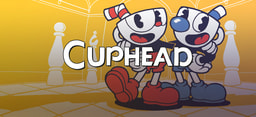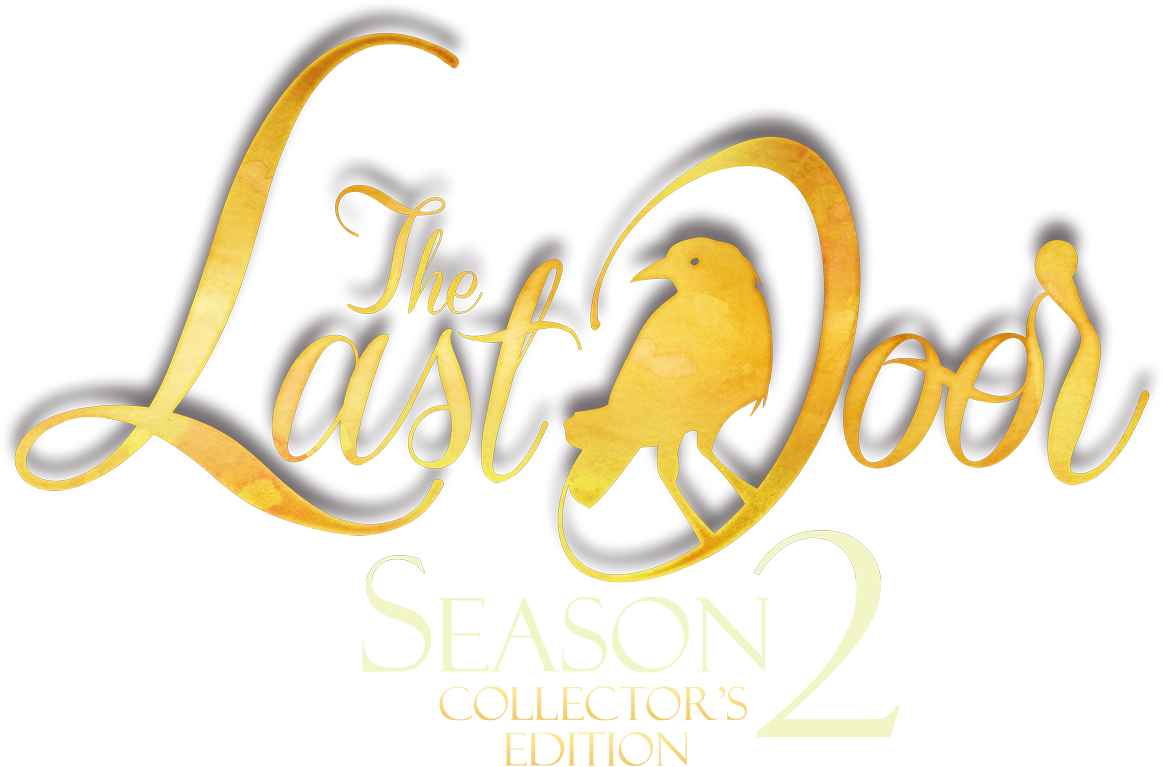April 2025 report
Looks like April was a month of psychological horrors. ^^
Enough of small talk and now to the actual assassinations! Good luck in the new month and enjoy your games!
When Jeremiah Devitt receives a cryptic letter from his old schoolmate, Anthony Beechworth, something awakens inside of him. A heavy feeling of wrongness urges him to pay a visit to Anthony, yet all he finds is an abandoned manor. A long-forgotten memories slowly begin to resurface as he searches the empty rooms for answers. With every step taken, he gets deeper down the rabbit hole into the darkness, yet there is no turning back. All it takes to uncover the truth is to cross the last threshold.
The Last Door is an excellent point&click adventure game. The atmosphere of Victorian England is chilling, unsettling, in some moments even creepy. The soundtrack is absolutely perfect and nicely corresponds with the ubiquitous occult mood. The pixel graphic, even though simple, is just perfect and you can feel the tension, emotions, horror from every screen. Oh, and can't forget about the great writing, I had the same feeling as when reading some novel from Edgar Alan Poe or H.P. Lovecraft! We won't get answers for everything that happens, but that's actually okay, there is no need to be literal. The lore is quite interesting and the mysteries stimulates our imagination even after completing the game!
The whole game is divided into four episodes. Each takes place in a different location, yet the goal remains the same - learn more about Devitt's past and uncover the secret behind the Last Door. Upon completing the main episodes, we can get an insight into the events through very short minisodes. The game is short with great pacing and can be completed in one sitting, which is the best approach in my opinion. Even though the game ends with a cliffhanger, worry not, as more secrets await you in the second season!
I have enjoyed The Last Door very much! Everything about it charmed me, and I can wholeheartedly recommend it to lovers of adventure games, mystery, and horror stories!
I am not sure if I can avoid even tiny spoilers, so if you haven't played the first game, stop reading and go play it right now!
Jeremiah Devitt vanished without a trace, so the main focus shifts to Dr. John Wakefield, his psychiatrist from the first season. Deeply unsettled by Devitt's visions and the occult background, he turns for help to his colleague, Johan Kaufmann, who is apparently more knowledgeable in this area of expertise (he for sure knows more about the events than he should). Together, they set out on a journey following in Devitt's steps, soon realizing that some secrets should be left forever uncovered, otherwise everyone's safety would be at risk. But The Veil was already penetrated, and something has set its eye on Wakefield; there is no other choice than to face this madness head-on. Wakefield will have to brace up and challenge his fears to be able to step through The Last Door.
Sequel to the excellent adventure The Last Door retains all of its predecessor's qualities. The atmosphere of Victorian England is yet again ominous, unsettling, and quite creepy. The oppressive mood of being watched follows Wakefield even on our trip beyond England's borders; nowhere is safe. I am gonna repeat myself, but I have to highlight the soundtrack again, which is simply exceptional and does a great job in creating the right tense atmosphere. The pixel graphic remains simple, but is slightly more detailed than the first game. The story is very catchy and you find yourself pushing for more to be able to get to the bottom of this occult society! Also, the characters are nicely written, and I really enjoyed the interaction between Wakefield and Kaufmann (even if brief)! The inspiration in the works of Edgar Alan Poe or H.P. Lovecraft is dripping from every word. <3
The whole game stays divided into four episodes with extra minisodes. Each will take us to a different location where we will uncover bits of past events closely tied to Devitt and his friends. We will get some answers on things shown in the first game, but that doesn't mean we won't ask new ones. There are two endings depending on the last choice you make, but as there is no manual saving option, you need to replay the last episode to see the other one. The game is now longer, but still very captivating from the beginning to the end. Second playthrough doesn't get boring, as you will see behind the curtain, and some of the events will make even more sense than before.
Although both endings work as a closure to Devitt's story, I can easily imagine a third season!
The second season bewitched me even more and I have enjoyed every second of it. Wakefield is a sweetheart, even though he consists of black/white/red dots. The simple pixel graphics just intensify the excellent writing you will find in both of the games. Yet again, I can easily recommend it to lovers of adventure games, mystery, and horror stories.
If they ever decide to once more open The Last Door, I will step through it without looking back. <3
There is no connection to the previous game other than being on the trail of a serial killer. This time, we are playing as a private detective, Arthur Christie, who is hunted by police as the prime suspect in those killings. To prove our innocence, we need to stay one step ahead of the police officers and, more importantly, not get killed by the real murderer.
An okay hidden object game. The plot is a little bit far-fetched, and can't say I oriented in it much. The main character, even though a man, is rather useless and not very competent. It's a surprise that he survives the whole ordeal.
All in all, it's a short standard hidden object game. Puzzles and hidden object scenes are fine, luckily nothing to get stuck on - although I was unsure on what to do next in some moments (the worst in it was the police station). As in the first game, we get to use forensics utilities when examining the collected evidence, but only a few times. There are also two collectibles to be found - one normal item and one morphing object. Luckily for us, there is an indication that everything was collected, so just remember to check it out before leaving the screen, and you are safe to go.
After completing the main story, you open an extra chapter which serves as a prologue. Not that it made the plot anyhow better afterwards.
The second game in the Orwell universe. The premise remains the same - we need to search for relevant information on our targets through any means necessary. We will browse the internet and check out their social sites, work-related documents, medical records, etc., eavesdrop on their conversations, or take control of their private PC/phones. This time, though, we won't be doing it to stop some terrorists but to save the image of The Nation by discrediting our target, thus turning the public opinion against him.
The sequel takes place during the same three days as the first game, and if you submit your saves at the beginning, the news will reflect your previous decisions accordingly. We will also come across a few names from the first game, albeit briefly.
The interface remains the same. One half of our screen shows information to browse, the other half serves as a drop point for the found data. This time, we have a time limit within which we need to collect all of the required information for us to release a manipulating post on social media. One uploaded information costs 10 minutes, so we need to be careful which data we decide to use. If we are unable to make it within the time limit, the suspect will release his inflammatory articles against The Nation, and our advisor, Ampleford, will be disappointed in us… oh, and we will miss related achievements. Otherwise, there is no real penalty. The day will end after we submit enough data for Ampleford to come up with enough catchy lines, one way or another.
Another big change is the voice acting - our target persons are all voiced, and we can actually listen to their phone conversations. It's a nice addition on one hand, as the emotions hidden behind the lines become even clearer; on the other hand, if it wasn't there, nothing much would have changed. The phone calls drag on, voiced or not. Also, our main target, Raban Vhart, is a rather unsympathetic fellow (at least for me), and his voice just deepened the animosity.
Sadly, the thing that bothered me in the first game - the inability to skip the phone calls - remains. Going for the rest of the achievements was even more painful, as some of them are influenced by decisions made across the chapters… which means more playthroughs, especially if you make some mistake. There is also an unpleasant feature when uploading selected info - when the uploading happens, half of your screen (the one for the drop) gets locked for a few seconds, and nothing else can be added during that time. Another thing that irritated me a little is the fact that when you decide to listen to the phone conversation right away, you can't upload any information because your screen is locked. But if you select the archive option, you can freely roam around, upload info, and listen to the talk. That's what I call efficient time management. Also, there isn't any situation that requires your immediate reaction during the calls, as in the first game - well, there can't be any, as you can't upload anything during it! Gah.
Somehow, the sequel felt more restraining and linear than the first game. You spent most of the time waiting… for data to upload, for a call to end… for something to happen. I didn't care for the characters, nor for what my decisions would cause them. The new "influencer" mechanic is basically useless - you can't use it on your own, you don't create the lines, you just wait for the order that it's ready to use. The endings are… without any impact? Not sure if it's because I played both games in close succession, but the sequel left me unimpressed.
The Wanderer shows us what the Frankenstein's creature must have experienced after his involuntary birth. The journey is quite melancholic, full of disappointments. The society fears and despises the Wanderer, and there is nothing he can do to change it. The miserable end is inevitable.
There isn't much to the gameplay, as it's more of an interactive story. We will visit different locations as the story progresses. We will explore, observe the people, perform a simple puzzle, and move on. In some moments, we need to make a choice that will shape the Wanderer's fate. There are various endings corresponding to the made decisions, although I doubt they are that much different (I have yet to try it).
The visuals and music are beautiful, very artistic. The soundtrack is especially impactful, and in this case, I fear that the form killed the content. The journey/fate of the Wanderer left me sadly rather impassive. I didn't become emotionally invested or somehow connected to the creature, which is bad for a story-heavy game. I thought there would be more to it than the simple it's unfair to be ostracized from society because of your looks. The game is also very short, and if the movement wasn't so sluggish, it would be even shorter.
I read Frankenstein many years ago, so my memory of the events isn't at its best… I will re-read the book, play the game once more, and see if it influences my experience for the better or worse.
I should probably state right away that I am not familiar with the original game and I went into it without knowing anything about the story.
In Anna, we follow a college historian teacher on his journey to a long-abandoned sawmill somewhere in the Italian mountains. Dreams about this place are haunting his mind even though he has no recollection of ever visiting it. His mental health turns quickly unstable, resulting in his collapse during one of his lectures. On sick leave, he accidentally uncovers actual photographs of the sawmill in an old envelope. After this discovery he remembers his love for Anna and immediately leaves to search for her.
Upon his arrival at the sawmill, he finds it still standing, although long abandoned. His memory is still hazy, though, so he decides to enter the building. If he can find answers on all of his questions depends on his tenacity and willingness to sacrifice… just anything.
What to say and not to spoil the surprise. Anna is a pretty good adventure game with a tense horror atmosphere. It's rather short, but the length is mostly determined by what items you can find and what clues you are able to connect. The more you know, the deeper into the rabbit hole you get. The game is adapting to your "decisions" and even slightly rushing your progress with supernatural events that may harm you (lowering your sanity threshold). These events aren't exactly scary, more like unsettling, disturbing, creepy and nicely correspond with the feeling of slowly losing your mind.
The visuals are still rather pretty, even though we spent most of the time inside a dark house. The music is fitting and the sounds of the surroundings are nicely done. The voiced lines are on the other hand barely audible. There isn't any tutorial, and you have to figure most of it out on your own, some of the (environmental) puzzles can, thanks to it, look harder than they are. The lore is interesting, and I enjoyed searching for the various documents. There are a few inconsistencies, but overall, I find the story nicely written. The game has 8 possible endings, and some can be hard to figure out on your own. The big finale isn't exactly surprising, but it also isn't underwhelming. Oh, and the speedrun achievement can be frustrating to get.
All in all, I have enjoyed my time with Anna and can easily recommend it. I am now curious about the sequel - Nascence.
Etienne Quist was a successful author until he committed an unspeakable crime. He is sentenced to writer's shackles for thirty years. Unable to write something of his own, he needs to work off his punishment at one of the publishing agencies doing monotone work. To escape this ordeal, he turns to not-so-official means. The boss of the criminal underworld offers him a series of jobs with the promise of releasing him from the shackles. All he has to do is enter a book and steal a legendary item from it. What could possibly go wrong?
The Bookwalker is a point-and-click adventure game with a lot of reading to do. The majority of the game happens in an isometric view, whereas between missions, you can explore your home in a third-person view. There are six jobs - six books to visit. Each offers a different world and setting, from medieval to futuristic sci-fi. Once inside, you need to find the ordered item by interacting with the environment and speaking to the book characters. From them, you can get insights on the story you are "reading" or what has to be done to get to your goal. Even though the shackles are restraining his writing ability, Etienne can still influence the world around him with the help of an ink - not that it's without a price, of course. Roaming around the pages can get dangerous, and one has to be ready for a fight - yet again, with the help of ink. We are in a printed books after all.
Etienne isn't going to be all alone on this task, as right at the beginning, he finds a mysterious cage containing a book character. He doesn't know who he is or how he got there. Etienne gives him the name Roderick and promises to find his original book before he is done with his work. From now on, Roderick will be our sidekick, offering us help, advice, and unwanted criticism. Etienne's ethics and morality will be for sure questioned a lot by him.
The book visuals are nice, distinct and very detailed. There is no voice acting, only babbling sounds in some moments. Music is mostly ambient, playing subtly in the background. The story is rather interesting, and I liked the premise, although I think it could have been more elaborate. I would probably enjoy focused views on a lower amount of books. The interactions between Etienne and Roderick are fun, but their development is sometimes a little bit nonsensical. The fights are simplistic and consist of blocking and striking, don't expect any elaborate tactical fights. There are a few choices that influence your attitude and some of the events, but in the end, they don't mean anything. The story will end in the same way, which is a shame, as there could have been more possibilities. The ending itself was… unexpected and maybe a little bit disappointing.
All in all, as a book lover, I have enjoyed The Bookwalker. The idea of getting into the book and influencing it is very tempting. Some of the book stories would interest me on their own. Even if there are a few weaker points, I still think it's a solid game. Can recommend.
Freshly started
-
Cuphead

4.3 hours playtime
5 of 28 achievements

-
Stray Gods: The Roleplaying Musical

0.5 hours playtime
0 of 45 achievements

Continuing
The Last Door is a great game although I think i enjoyed the first season slightly more. Second season episodes had been a bit to long for my taste. And I needed to get over the fact that the main character changed. But the whole premise is very interesting and connects well.
Also, the soundtrack is just incredible.
Yeah, the main character swap is rather surprising. ^_^ I also wasn’t sure about Wakefield’s motivation; he was just Devitt’s psychiatrist in one short scene… why was he so invested in finding him? o_O But all in all, I became quite fond of him.
Absolutely! <3
Congratulations! Some great games in there. I have fond and strong memories of the two “The Last Door” episodes. You might have played it already, but if not, I recommend “If On A Winter’s Night, Four Travelers”. Similarly very narrative, psychological horror with minimal gameplay point & click. Short but sweet.
Thank you! <3
Oh my, you are right! I completely forgot about that game. I remember seeing it in my queue during some sale… will play it for sure! Thanks for the reminder. ;D














Thanks for the report– it was a good read and it featured a couple of games in my backlog.
I am happy you enjoyed it. <3